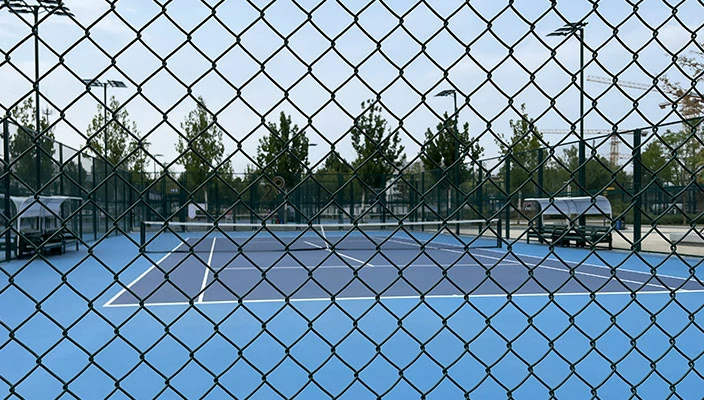iron wire manufacturers
Iron Wire Manufacturers A Crucial Component in Various Industries
Iron wire, a versatile and essential material, is used in a multitude of applications ranging from construction to agriculture. The production of iron wire has evolved over the years, driven by advancements in technology and changing market demands. This article delves into the significance of iron wire manufacturers, their production processes, the types of iron wire available, and their applications across different industries.
The Role of Iron Wire Manufacturers
Iron wire manufacturers play a pivotal role in supplying this fundamental material to various sectors. Their expertise lies in converting raw iron or steel into high-quality wire products that meet diverse specifications. Manufacturers are tasked with ensuring that their products not only adhere to industry standards but also provide durability and reliability to end users.
One of the primary challenges faced by manufacturers is balancing production efficiency with quality. With the increasing demand for iron wire, manufacturers are continually optimizing their processes to enhance productivity while maintaining the strength and flexibility of their products. Additionally, sustainability has become a critical focus area. Many manufacturers are investing in eco-friendly practices, such as recycling scrap metal to produce new wire and minimizing waste during production.
Production Processes
The production of iron wire typically begins with the drawing of wire from larger steel rods. This process involves several stages, including heating the steel, which makes it more malleable, and then drawing it through a series of dies to achieve the desired thickness. The drawing process can be repeated multiple times to produce finer wires.
After the wire is drawn, it may undergo additional processes such as annealing, which involves heating and then cooling the wire to improve its ductility and reduce brittleness. Coating is another important step that can enhance the wire's resistance to corrosion and improve its appearance. Common coatings include zinc (galvanized wire) and PVC, both of which provide additional protection against environmental factors.
Types of Iron Wire
Iron wires are generally classified based on their diameters, coatings, and applications. Some common types include
iron wire manufacturers

2. Galvanized Iron Wire Coated with zinc, this wire offers enhanced corrosion resistance and is widely used in construction, agriculture, and industrial applications.
3. Stainless Steel Wire Although not technically iron wire, stainless steel wire shares many characteristics with iron wire and is preferred in environments exposed to moisture and chemicals.
4. PVC Coated Wire This wire is coated with a layer of PVC for additional protection and is commonly used in outdoor applications, including fencing and garden structures.
Each type of wire has its unique properties, making it suitable for specific uses, whether it be in buildings, bridges, or agricultural fencing.
Applications Across Industries
The applications of iron wire are vast and varied. In the construction industry, iron wire serves as reinforcement in concrete, providing the necessary strength and stability to buildings and structures. In agriculture, it is commonly used for fencing to protect crops and livestock.
Moreover, the manufacturing sector utilizes iron wire for producing various products, including springs, mesh, and baskets. Electrical industries also employ insulated iron wires for wiring purposes, ensuring safety and efficiency in electrical systems.
In addition to these applications, iron wire is crucial in DIY projects and crafts, showcasing its versatility and ability to meet consumer needs.
Conclusion
Iron wire manufacturers are integral to the supply chain for numerous industries, providing high-quality products that foster growth and innovation. As technology continues to advance, these manufacturers will likely adopt new techniques and materials to improve production efficiency and sustainability. The future of iron wire production holds promise, reflecting the evolving needs of a dynamic marketplace. Whether in construction, agriculture, or manufacturing, the impact of iron wire cannot be overstated, underscoring its importance in contemporary society.
-
Innovations in Razor Barbed Wire Design TechnologyNewsAug.11,2025
-
Roofing Nail Compatibility with Different Metal Roof TypesNewsAug.11,2025
-
Welded Wire Mesh for Rockfall Protection BarriersNewsAug.11,2025
-
Galvanized Wire Corrosion Resistance TestingNewsAug.11,2025
-
3D Fence Solutions Preventing Bird CollisionsNewsAug.11,2025
-
Using Chain Link Fence for Urban Garden SupportNewsAug.11,2025




